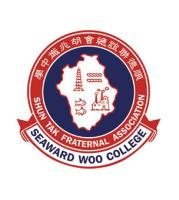| Language Policy |
Most students allocated to our school possess the ability of learning through English. Our school uses English as medium of instruction in teaching various subjects in some classes in the junior forms including Integrated Science (S.1 and S.2), Geography (S.1 and S.2), History (S.1 and S.2), Physics (S.3), Chemistry (S.3), Biology (S.3). Mathematics is taught in English in all junior forms. English subject results will be the chief factor to allocate students to different classes. Students have opportunities to be admitted into different classes (using mainly Chinese or mainly English as medium of instruction) at different levels. Our school has set up this mechanism, and will explain it to parents of junior form students. If S.3 students need to change MOI when promoting to S.4, our school will arrange supporting programmes. Our Native English-Speaking Teacher plays a crucial role in arousing students' interest in learning English and increasing their confidence and ability to communicate in English. Public speaking in morning assemblies, School Reading Award Scheme, inter-class or inter-group language activities are employed to enhance the language proficiency of students. Both Chinese and English Ambassador Teams have been set up to promote language learning in our school. A debating team has been set up to enhance students’ communication skill and other generic skills. Teachers of Chinese Language, English Language and Putonghua always train students to prepare for various internal and external competitions. |
| Learning and Teaching Strategies |
Our school improves the curriculum & teaching strategies through teacher professional development, collaborative lesson planning, school-based support scheme, and etc. We also encourage teachers to use different levels of teaching materials to cater for the diversities of students. Our school strengthens the requirements of classroom regulations to enhance students' learning habits. Subject teachers design learning guides to train students through self-learning, collaborative learning and peer-learning to build up self-regulated learning skills.<br>To further enhance the teaching and learning effectiveness, our Chinese, English, Mathematics and STEM departments have joined the Education University of Hong Kong’s middle leaders training programme. This professional learning community serves as a platform for professional exchange and experience sharing to improve curriculum development and enhance students’ abilities to acquire, construct and apply knowledge. |
| School-based curriculum |
1. Electives: 2X and 3X. Our school offers about 30 different combinations of electives to senior-form students.<br> 2. Curriculum highlights: Our school provides a diversified curriculum. Junior-form subjects include Life and Society, Design and Technology, etc. Many subjects develop their own school-based curricula and teaching materials. The HKDSE examination subjects in senior forms involve multiple key learning areas such as Design and Applied Technology, and Visual Arts. |
| Approach to Catering for Learner Diversity |
A whole school approach is adopted in our school to cultivate a caring and collaborative culture in order to cater for students’ diversity. Making good use of the LSGSS, we employ professionals from the outside to develop special tailor-made measures and guidance services for individual students who have special learning needs. |
| Approach to Integrated Education |
The Student Support Team, comprising experienced language teachers from counselling and discipline committees, the school social workers and the educational psychologist, addresses the needs of students with special educational needs.<br>Our school is committed to providing quality education through special exam arrangement, tailor-made curricula, remedial classes, after-school tutorials, speech therapy, a range of supportive programs to enhance students’ learning and to ease their stress whenever possible emotional and behavioral problems arise.<br>We believe that effective home-school cooperation is very important in quality education. Therefore, we have regular parent-teacher contact and consultation in order to enhance our students' learning and development. |
| Education Support for Non-Chinese Speaking (NCS) Students |
|
| Home-School Co-operation |
A closer tie and cooperation between the school and parents is the cornerstone of healthy development of teenagers. To enhance mutual understanding, parent seminars, parent days and talks are organized regularly so that parents can understand the needs of their children better. Moreover, our PTA organises different activities, such as Jeans Day, STEAM together with Parents, to facilitate home-school cooperation. Besides, PTA also sets up a fund to subsidize poor students or outstanding students to participate extra-curricular activities with an aim to broaden their horizons. |
| School Ethos |
Different functional parties design programmes to cater for students' needs, and moral-value reinforcement is conducted during hall assemblies and normal class periods. Our "Big Brothers and Sisters Scheme" assists junior form students to adapt to the school environment and helps them when they come across difficulties in various aspects. |
| School Development Plan |
1. Promote e-learning to enhance teaching and learning effectiveness;<br>2. Promote class management and nurture a caring school culture;<br>3. Implement STEM education and unleash students’ potential in innovation;<br>4. Promote national security education and nurture students as good law-abiding citizens. |
| Teacher Professional Training and Development |
The Staff Development Committee helps to provide professional development for teachers and peer lesson observation to enhance teaching effectiveness. Besides, the school also encourages teachers to actively participate in external professional training and peer lesson observation. By building up a network of professional contacts, we hope to strengthen teachers’ vision and mission. |
| Life-wide Learning |
To strengthen students' interpersonal skills and develop their potentials, the ECA Committee provides a wide range of extra-curricular activities which cover academic, physical, aesthetic activities and community service. |
